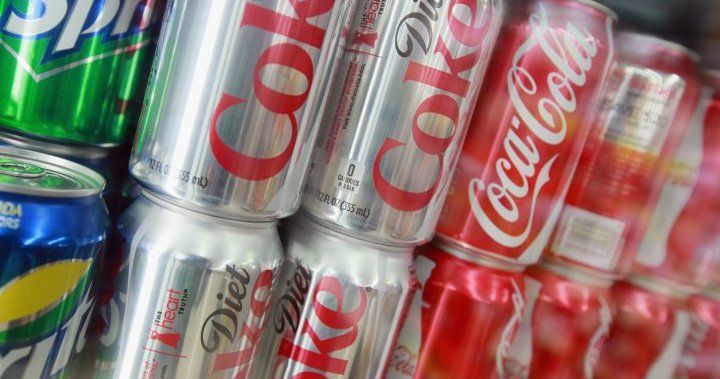According to the World Health Organization (WHO), aspartame, an artificial sweetener commonly used in sugar-free soft drinks, desserts, and chewing gum, may have a potential risk of causing cancer. However, experts interviewed by Global News are not overly concerned about this warning. The International Agency for Research on Cancer (IARC) conducted a study assessing the hazards of aspartame and classified it as “possibly carcinogenic to humans,” with limited evidence of a potential link to liver cancer. The IARC is calling for more research on the health implications of aspartame consumption. The findings were published in The Lancet Oncology journal.
However, Mary Schubauer-Berigan, acting head of the IARC Monographs program, clarified that this classification doesn’t mean that there is a known cancer risk from consuming aspartame. Instead, it is a call for further research to better understand the potential hazards posed by aspartame.
Aspartame is a popular artificial sweetener found in many diet sodas, including Coke Zero. It has fewer calories than sugar and falls into the Group 2B category, along with 322 other agents classified as “possibly carcinogenic” by the IARC. Other substances in this category include Aloe Vera, diesel fuel, gasoline, and pickled vegetables. It’s important to note that just because a substance is classified as a carcinogen, it doesn’t mean it will cause cancer in every person exposed to it.
The experts interviewed by Global News are not particularly worried about the use of artificial sweeteners in food products. They believe the risk of aspartame causing cancer is very low, and the evidence supporting this risk is uncertain. Aspartame is especially helpful for people with diabetes as a sugar substitute, so classifying it as a possible carcinogen may create confusion and unnecessary concern.
The WHO experts have emphasized the need for more research to fully understand the risks of aspartame and its potential link to cancer. The Joint FAO/WHO Expert Committee on Food Additives (JECFA) also conducted a separate analysis and did not recommend any changes to the acceptable daily intake (ADI) of aspartame. The current ADI established by WHO and Health Canada is 40 milligrams per kilogram of body weight per day, which is considered a safe amount. This translates to roughly 9-14 cans of soda per day, which is already a large quantity.
Food and beverage groups have welcomed the JECFA’s findings but have criticized the IARC’s classification for potentially confusing consumers. They believe the IARC’s report should not be equated with true scientific and regulatory agencies. The WHO has previously advised against the use of artificial sweeteners for weight loss, citing evidence that they don’t have any long-term benefits in reducing body fat and may even increase the risk of type 2 diabetes, cardiovascular diseases, and mortality in adults.
In conclusion, while the IARC has classified aspartame as “possibly carcinogenic,” experts are not overly concerned. More research is needed to fully understand the risks, and current consumption levels of aspartame are considered safe. Consumers, especially children, are advised to look for alternatives that do not contain added sugars or artificial sweeteners and limit their consumption of sweetened products overall.
Denial of responsibility! VigourTimes is an automatic aggregator of Global media. In each content, the hyperlink to the primary source is specified. All trademarks belong to their rightful owners, and all materials to their authors. For any complaint, please reach us at – [email protected]. We will take necessary action within 24 hours.


